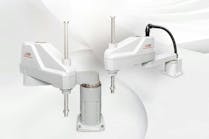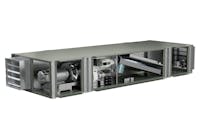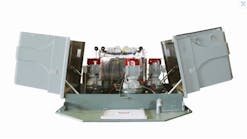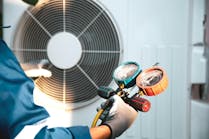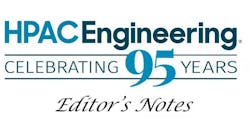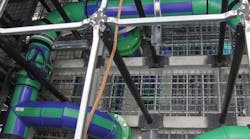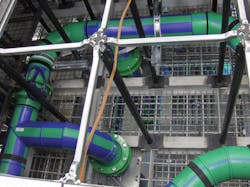With a mission to strengthen U.S. security, Lawrence Livermore National Laboratory (LLNL) in Livermore, Calif., is home to two of the world’s most powerful supercomputers: the 96-rack Sequoia, dedicated to stewardship of the nation’s nuclear-weapons stockpile, and the 24-rack Vulcan, dedicated to enhancing U.S. economic competitiveness.
Though not connected mechanically or electronically, the two computers occupy the same building. The first to be brought on line was Sequoia, during the fall of 2012. Sequoia’s manufacturer, IBM, required cooling-system piping to be stainless steel or copper. LLNL engineers, however, wanted to avoid the introduction of welding fumes into the data-center environment and, thus, worked with IBM to develop a plan to research the use of plastic piping materials.
Frank Ledda, who was vice president of business development for mechanical contractor EMCOR Services Mesa Energy Systems at the time, was intrigued when he learned of the 40-year international track record of Aquatherm’s polypropylene-random (PP-R) pipe system.
Aquatherm’s piping systems are long-lasting because of the raw material and connections: The pipes are joined by heat fusion, bonded at the molecular level into one piece. No chemicals, resins, or glues are needed—plus, there are no toxic fumes.
“We liked the heat-fusion connections because there’s no welding,” Anna Maria Bailey, LLNL computing-program facility engineer, said. “You can make the fusion bonds in the same space as the computers.”
Additionally, heat fusion eliminates systemic weaknesses and fail points.
EMCOR, the prime contractor on the project, and the mechanical subcontractors participated in factory training conducted by Aquatherm and Aquatherm’s local manufacturer’s representative, Mega Western Sales. This training and a post-project pressure test entitled LLNL to a 10-year, multimillion-dollar warranty.
The PP-R pipe’s chemical inertness and chemical purity complied well with IBM’s strict water-treatment requirements.
Two plate-and-frame heat exchangers and two 150-hp pumps from Bell & Gossett form the backbone of the mechanical system, which is run with an Automated Logic digital control system. The heat exchangers are sized for 75 percent of the load at 30 million Btuh each.
Once the installers overcame the learning curve associated with the fusion connections, the project proceeded smoothly. The PP-R pipe resulted in better flow rates and approximately $2 million in project savings. Additionally, the pipe helped LLNL meet its environmental-management goals and standards and is expected to aid LEED recertification efforts in 2015.
For Vulcan, Sequoia’s piping and cooling-system installation was copied, but on a smaller scale and within a three-month turn-around period. This time, Akima Construction Services performed the installation.
“We had already seen polypropylene being used on things like the Sequoia project and nuclear plants, so we were familiar with it,” Bailey said. ”The cost savings (an estimated $1.5 million) and the type of material used were the big reasons for using Aquatherm on this particular job, the same as it was for Sequoia.”
As on the Sequoia project, water-quality and treatment requirements were strict, but LLNL was not concerned.
“By using polypropylene, we didn’t introduce metals into the system, and it also let us meet our ISO 14001 goals since there are a lot less chemicals in the system,” Bailey said. “It’s easier to maintain, and there isn’t waste that comes from treating the system with chemicals.”
For Design Solutions author guidelines, call Scott Arnold, executive editor, at 216-931-9980, or write to him at [email protected].
